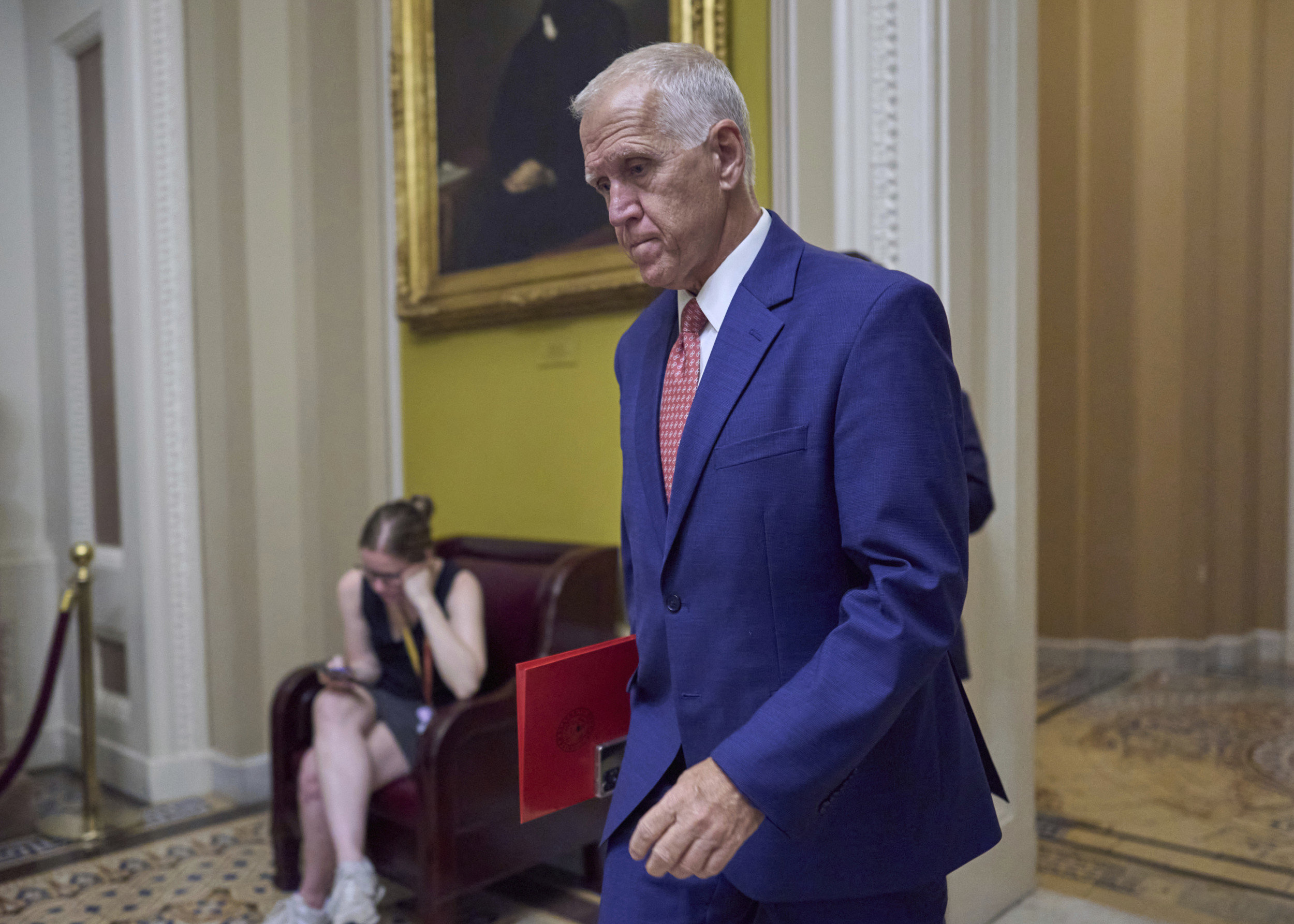🎙️ Voice is AI-generated. Inconsistencies may occur.
The Safeguard American Voter Eligibility (SAVE) Act passed on Wednesday by a vote of 221 to 198.
In total, 216 Republicans and five Democrats voted to pass the bill, while 198 Democrats voted against the measure.
In May, Representative Chip Roy, a Texas Republican, introduced the SAVE Act, which would require those registering to vote to provide documentary proof of United States citizenship. It is already illegal for noncitizens to register to vote or to vote in federal elections.
The bill had 104 Republican co-sponsors, including top House Republicans such as House Majority Leader Steve Scalise of Louisiana, Majority Whip Tom Emmer of Minnesota, Republican Conference Chair Elise Stefanik of New York, and Republican Policy Committee Chair Gary Palmer of Alabama.
On the House floor on Wednesday, Roy said, "I dare [Democrats] to vote no against a bill that says that only citizens—American citizens—should vote in American elections."
His remarks came on the heels of Johnson suggesting that House Democrats planned to block the SAVE Act, writing on X, formerly Twitter, on Monday: "Why are Democrats so adamantly against ensuring only American citizens vote in our elections? They want to turn illegal aliens into voters. We must pass the SAVE Act to prevent this."
There is no evidence to back up claims that scores of illegal immigrants have voted in past elections or that the Democrats plan to garner illegitimate votes in the upcoming 2024 election.
Below are the 5 Democratic House members who voted for the SAVE Act:
Representative Henry Cuellar of Texas
- Representative Don Davis of North Carolina
- Representative Jared Golden of Maine
- Representative Vicente Gonzalez Jr. of Texas
- Representative Marie Gluesenkamp Perez of Washington
Research published by the Brennan Center for Justice in 2017 found that across 42 jurisdictions, among 23.5 million votes tabulated in the 2016 general elections, there were 30 incidents of suspected non-citizen voting—around 0.0001 percent.
Under this bill, individuals who wish to vote in federal elections must provide identification like a passport, a valid government-issued photo identification card showing that the applicant's place of birth was in the U.S., or a military identification card with a U.S. military record of service showing that the applicant's place of birth was in the U.S.
Other valid government-issued photo identification cards can be used, but only if presented with other documentation, like a certified birth certificate, a Consular Report of Birth Abroad of a U.S. citizen or a Naturalization Certificate/Certificate of Citizenship.
The bill would also require states to establish programs "to identify individuals who are not U.S. citizens using information supplied by specified sources" and remove them from official lists of eligible voters.
The National Conference of State Legislatures says 36 states already require identification to vote. The 14 other states and the District of Columbia have "non-documentary" ID requirements that require voters to verify their identity in other ways, including signing an affidavit or polling book or providing personal information.
In a memo to House Democrats obtained by Axios, House Minority Whip Katherine Clark, a Massachusetts Democrat, told her colleagues to "VOTE NO" on the SAVE Act. The memo is known as a whip question, which goes over upcoming measures and tells party members how leadership wants them to vote.
Clark explained how this bill would burden American citizens who want to vote.
"A REAL ID drivers' license, a Tribal ID, or a military ID would be unacceptable unless coupled with additional documentation, such as a birth certificate or an extract from a birth record that proves the applicant was born in the United States," Clark wrote. "This would be an extreme burden for countless Americans, including military voters, Native voters, people who have changed their names (including tens of millions of American women), the elderly, the young, the poor, and naturalized citizens."

Update 7/11/24, 2:18 p.m. ET: This article was updated with additional information.
About the writer
Rachel Dobkin is a Newsweek reporter based in New York. Her focus is reporting on politics. Rachel joined Newsweek in ... Read more



